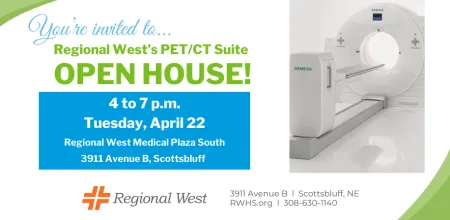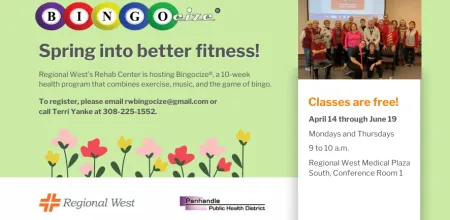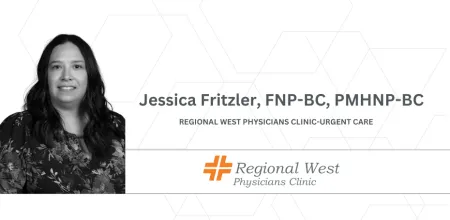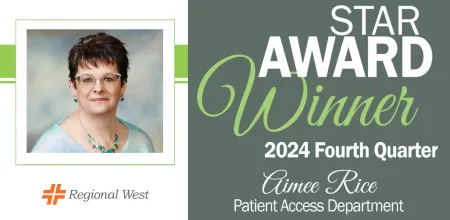Regional West Dietitian Offers Heart Healthy Food Tips

SCOTTSBLUFF, Neb., ― Taking care of your heart with a healthy diet doesn’t have to be complicated. Regional West clinical dietitian Kellie May, MS, RD, LMNT, says it’s as simple as adding more fiber, avoiding soda and sugary drinks, limiting salt, and drinking more water.
One of May’s responsibilities as a registered dietitian and licensed medical nutrition therapist is to provide nutrition education to participants in Regional West’s cardiac rehabilitation program. The goal of cardiac rehabilitation is to improve heart health through education, exercise counseling, and training.
Her top recommendation to patients is to increase the amount of fiber in their diets.
“Fiber traps cholesterol in the intestines and pulls it out of the body, which prevents it from being reabsorbed in the body and clogging your arteries. Soluble fiber in oats, fruits, vegetables, beans, and other foods decrease LDL − the cholesterol that builds up in the arteries,” she says.
May offers the following simple tips to begin to increase the amount of fiber in your diet.
Try to always eat the skin on baked potatoes. According to the USDA National Nutrient Database, an ounce of potato skin delivers more than five times as much fiber as an ounce of potato flesh.
Enjoy figs − skin, seeds, and all; they are packed with fiber, vitamin B6, copper, potassium, manganese, and pantothenic acid.
Start your day with oatmeal. It’s nutrient-rich, low in calories, and high in soluble fiber.
Skip fruit juice and eat the whole piece of fruit to get extra fiber and nutrients.
Try quinoa (pronounced “keen-wah”) in place of rice or potatoes. Although it’s a seed, it’s packed with protein, vitamins, minerals, and fiber.
For those who don’t like vegetables, May recommends tossing a variety of fruits or vegetables in a blender to make a smoothie.
“The flavor of the vegetables will be masked by the fruit flavors. If you throw in a handful of raw spinach, you won’t even taste it, but you’ll get all the nutrients,” she said.
In addition to adding fiber, May says you’ll have a healthier heart if you decrease the amount of animal fat, fried food, and salt in your diet; avoid alcohol; avoid tobacco smoke; trade sugary snacks for fruit, vegetables, or nuts; and take regular brisk walks.
Regional West Health Services in Scottsbluff, Neb., is the parent company of Regional West Medical Center, a 188-bed regional referral center and one of three Level II Trauma Centers in the state. As the region’s only tertiary referral medical center, Regional West offers care that spans more than 32 medical specialties provided by over 28 physician clinics. With nearly 300 providers, and over 2,000 employees, Regional West provides comprehensive and innovative health care services for the people of western Nebraska and the neighboring states of Colorado, South Dakota, and Wyoming.








